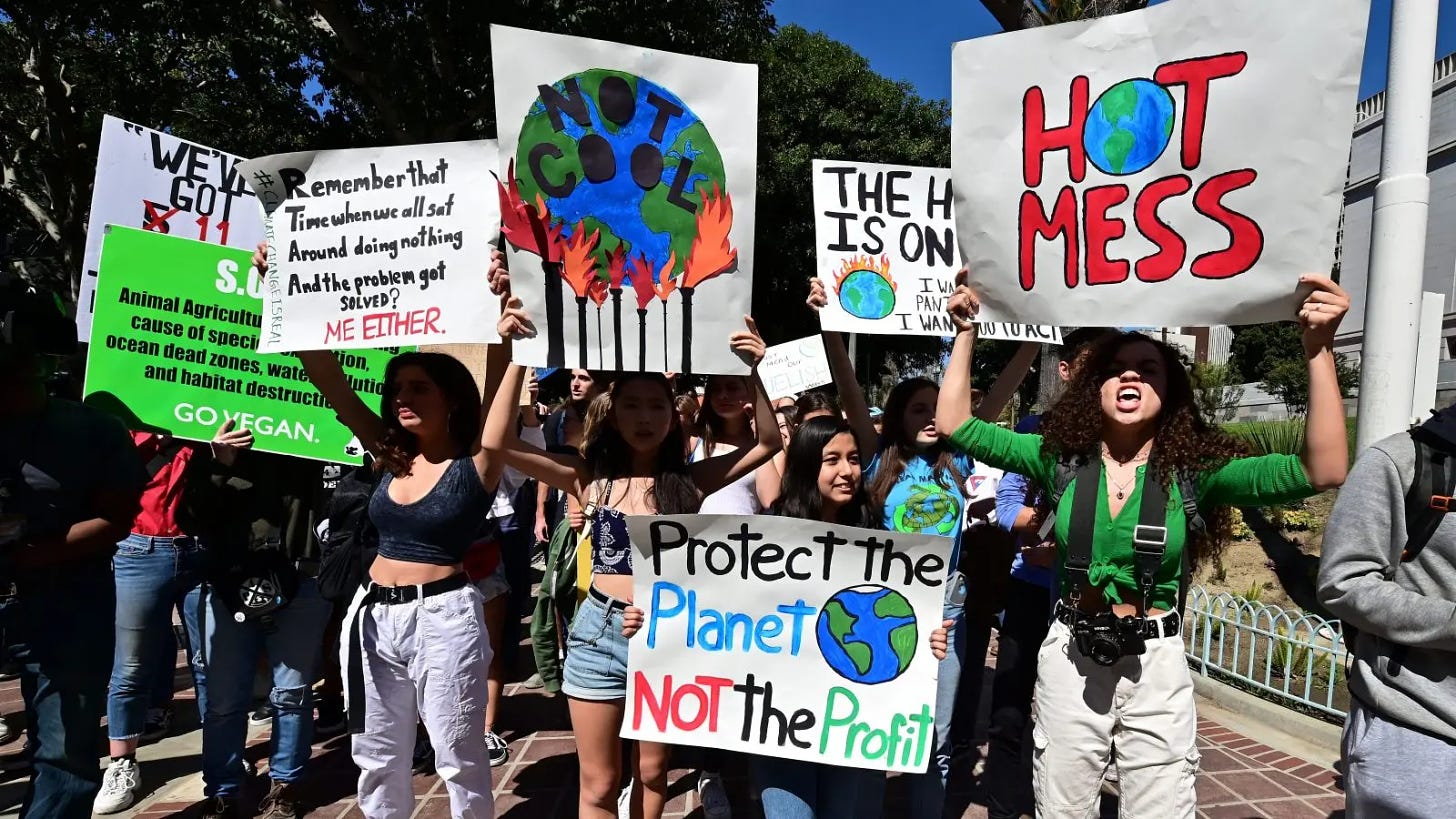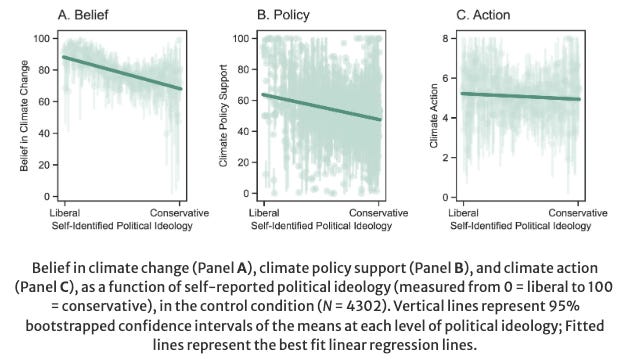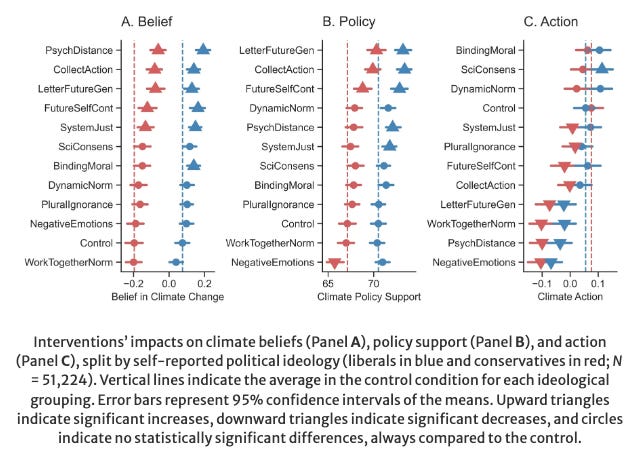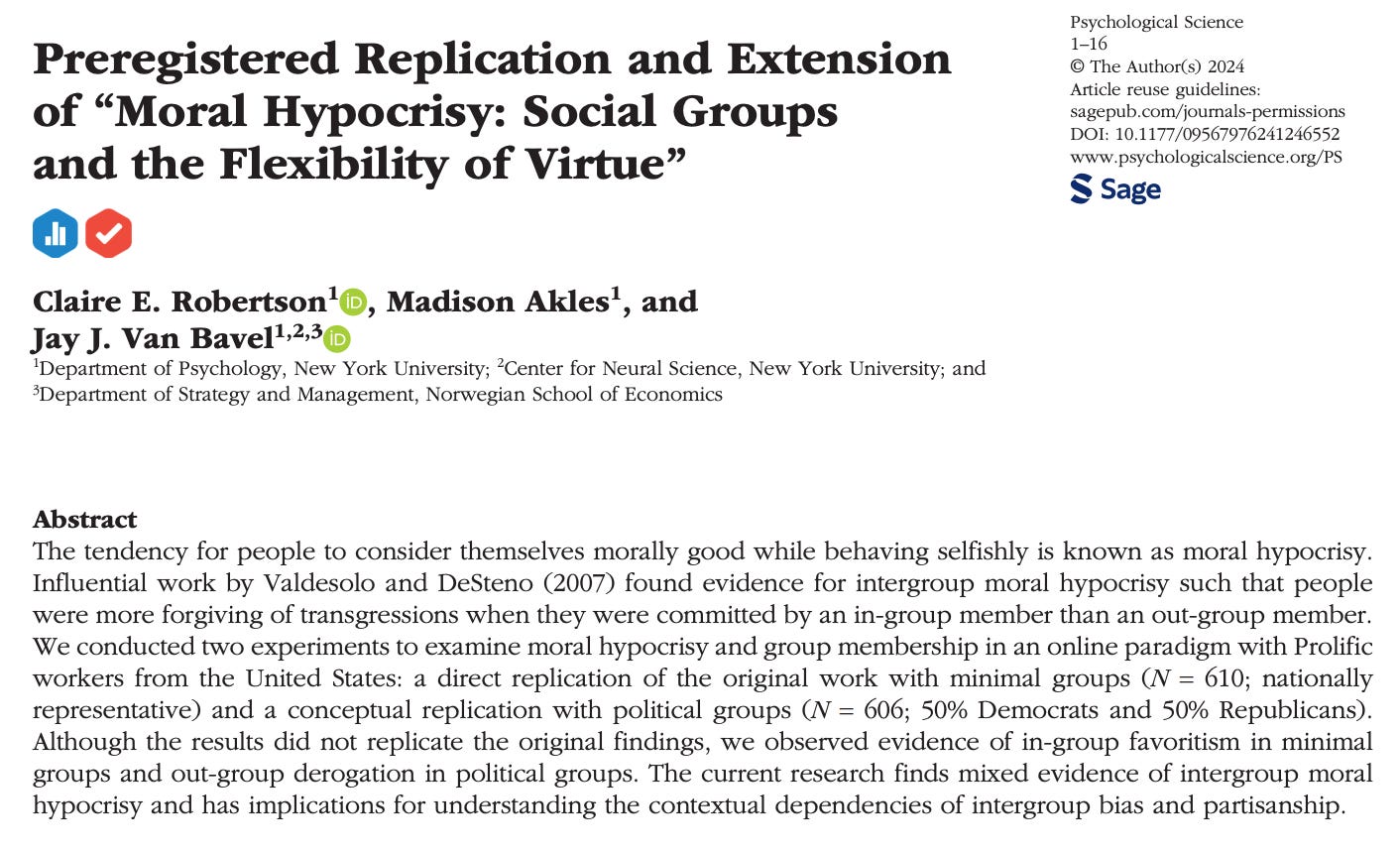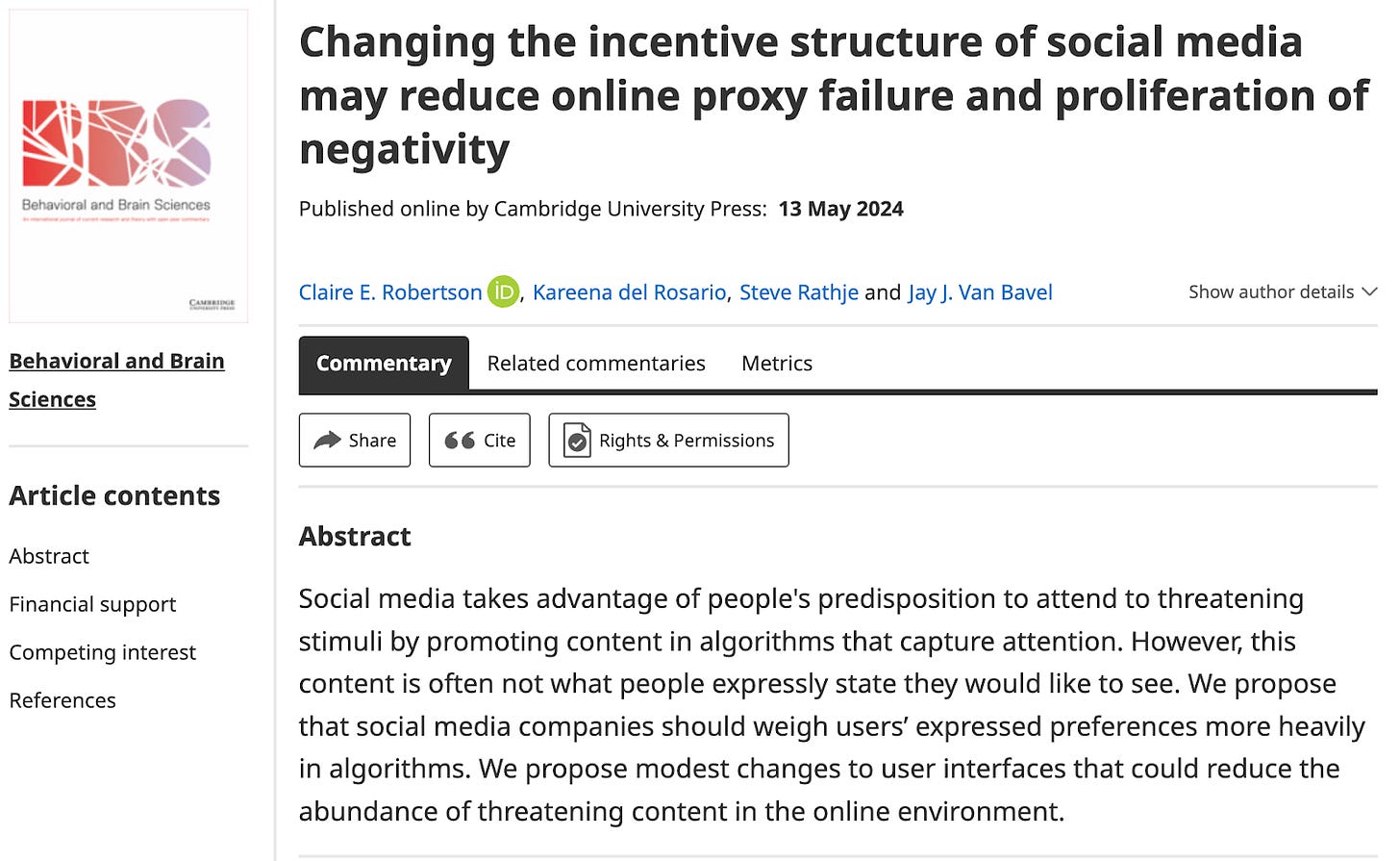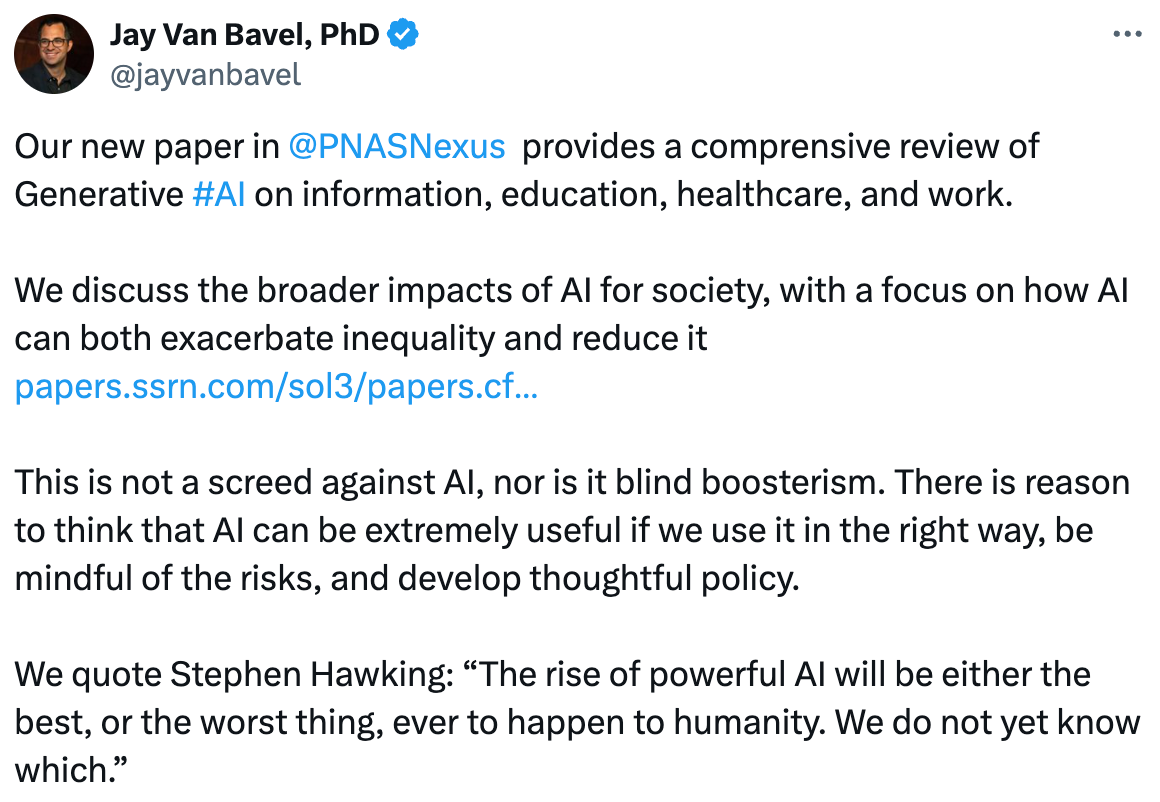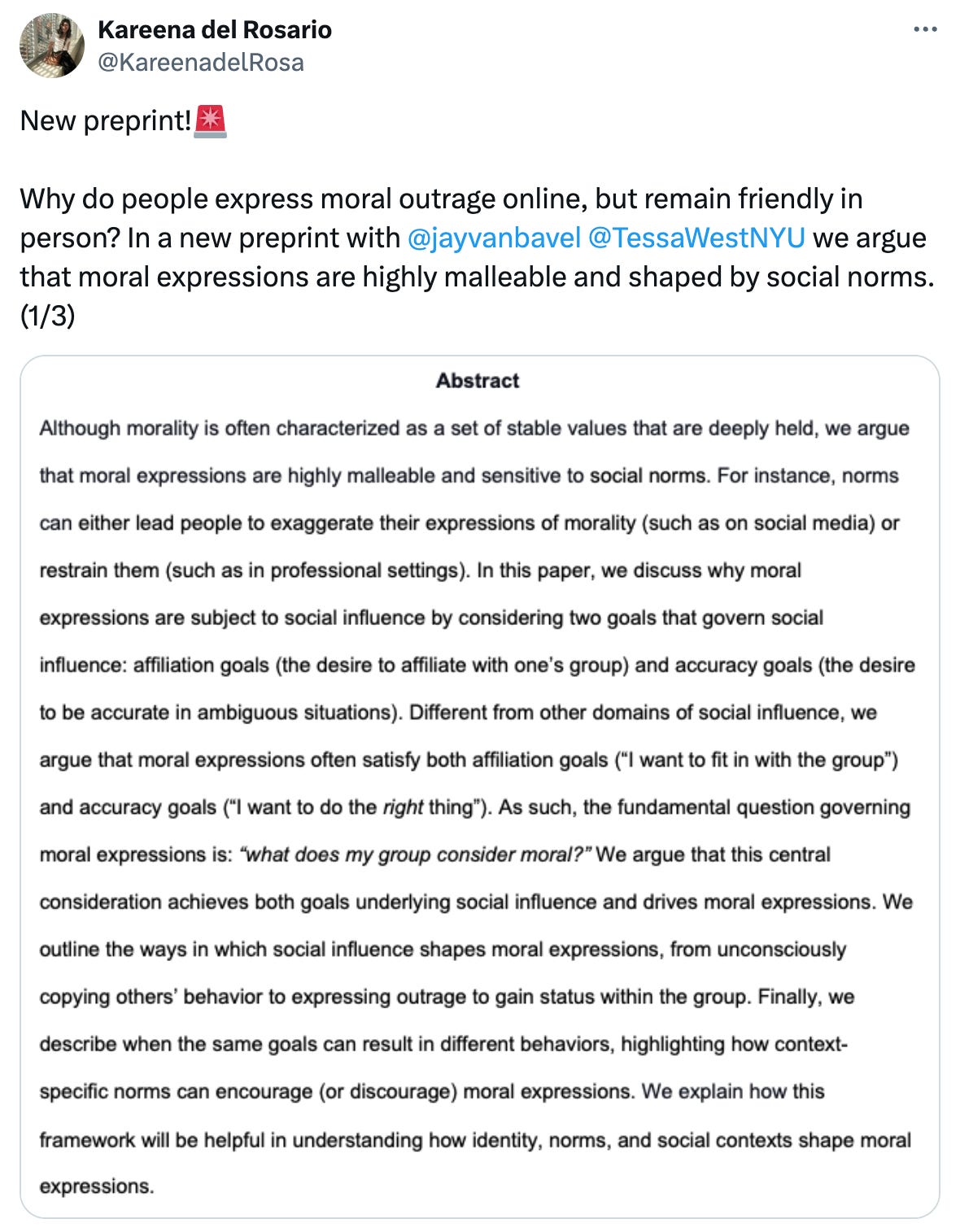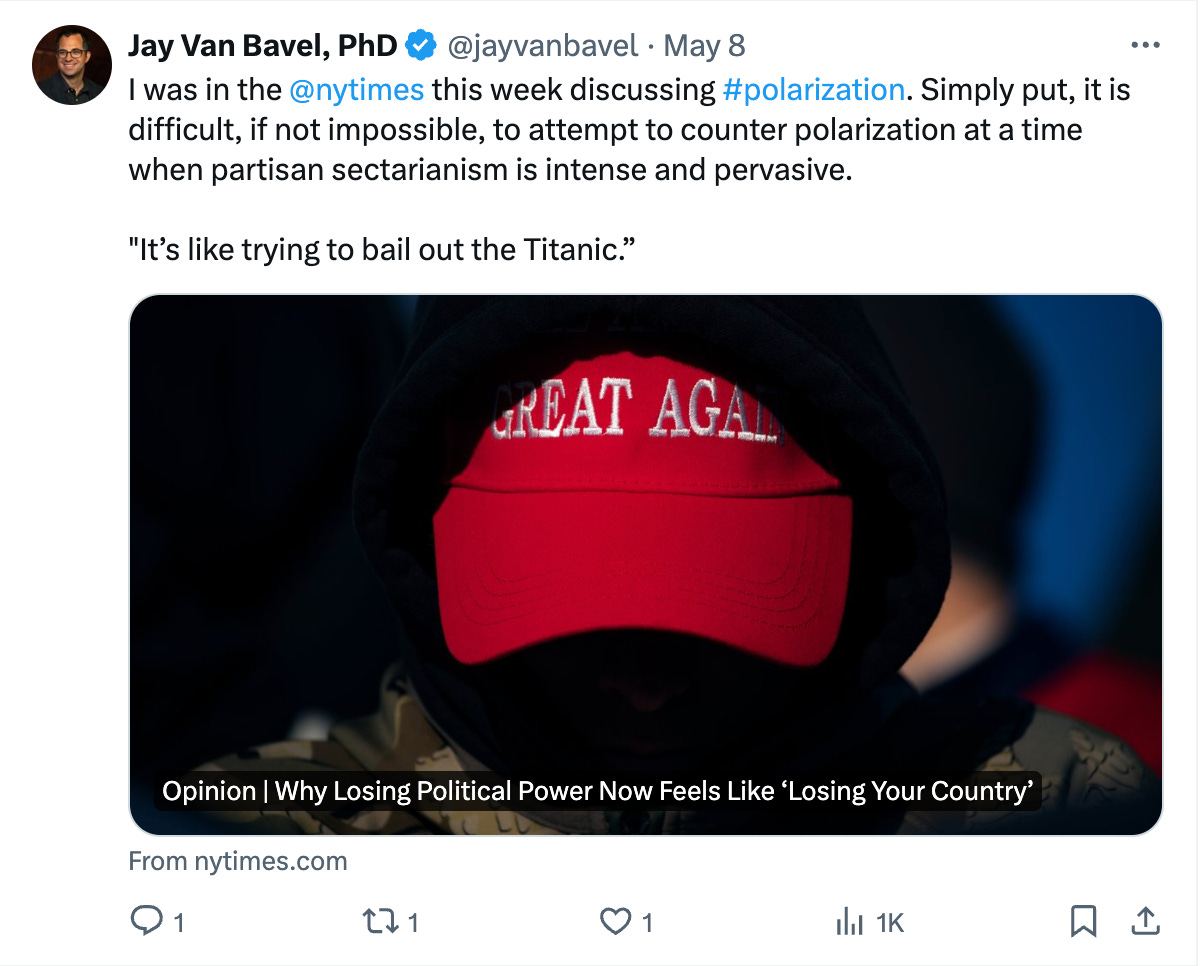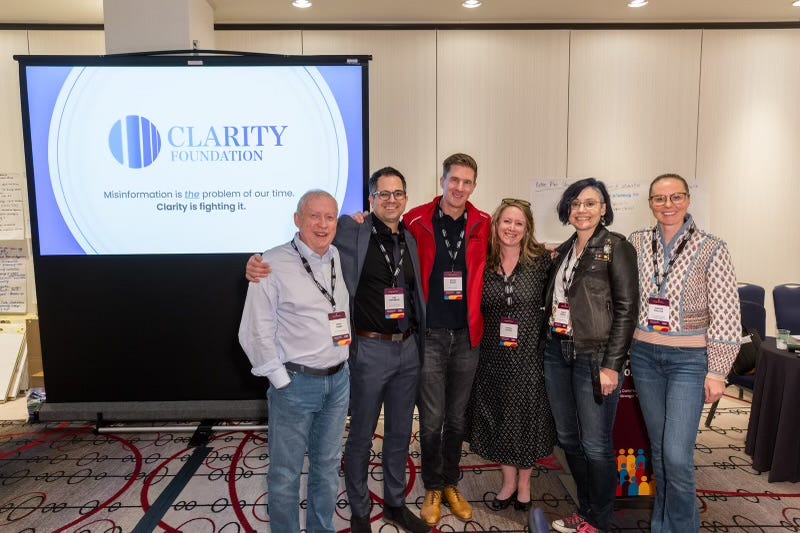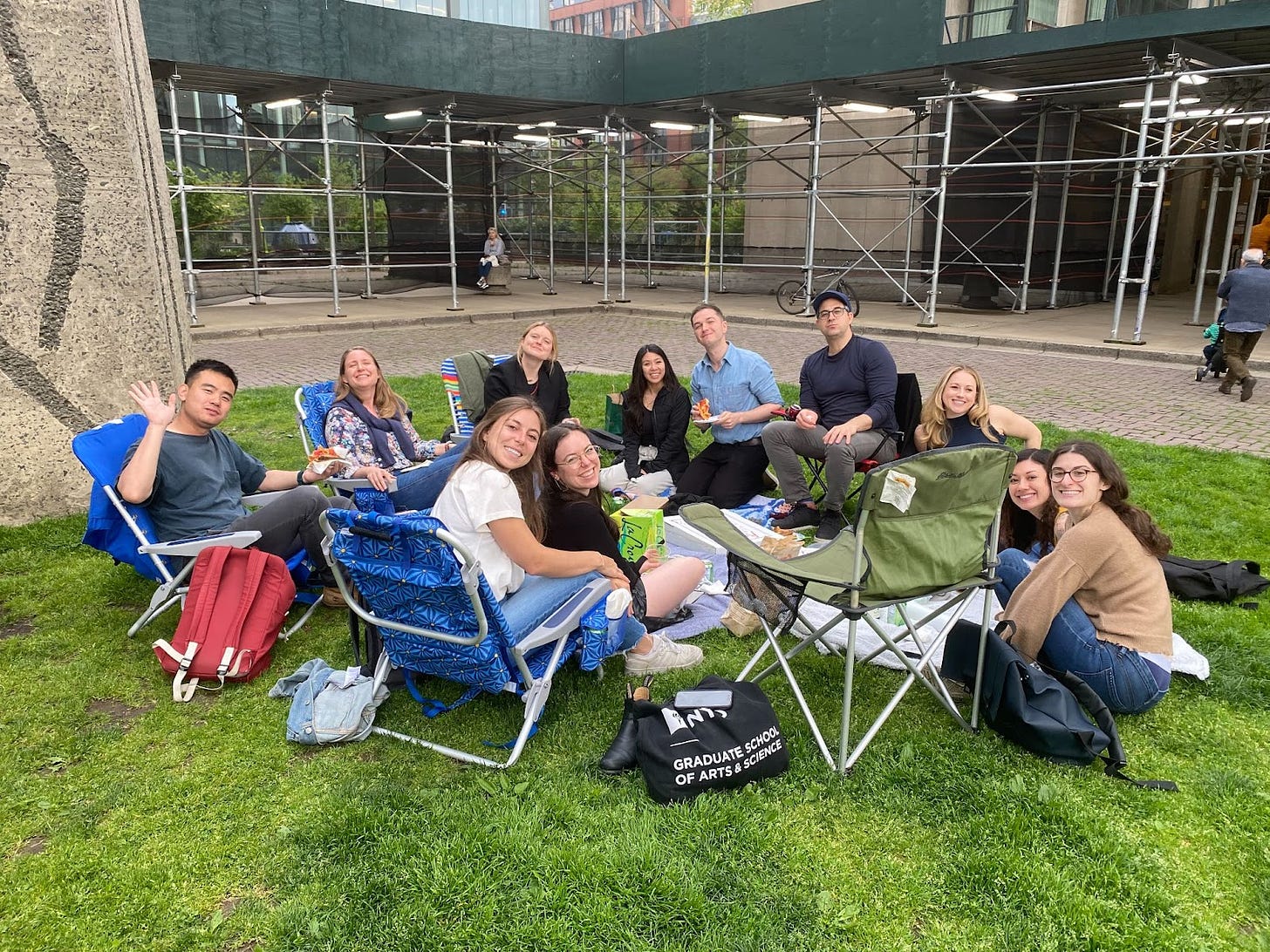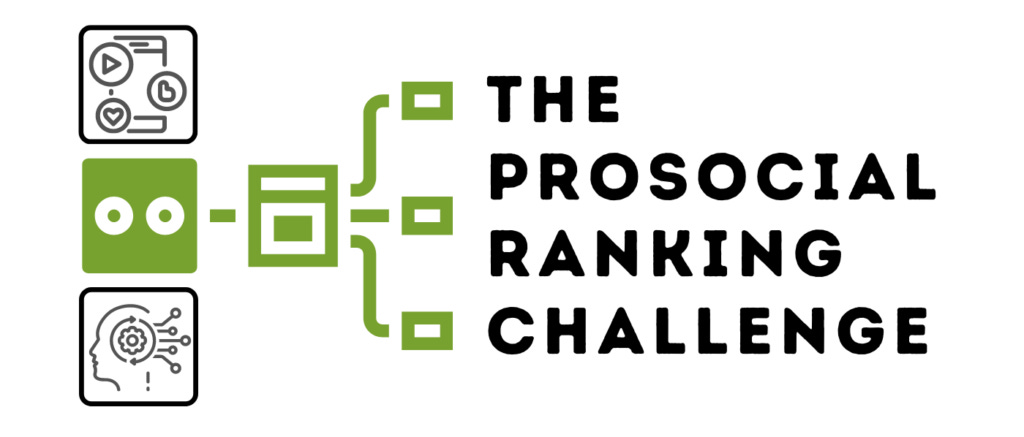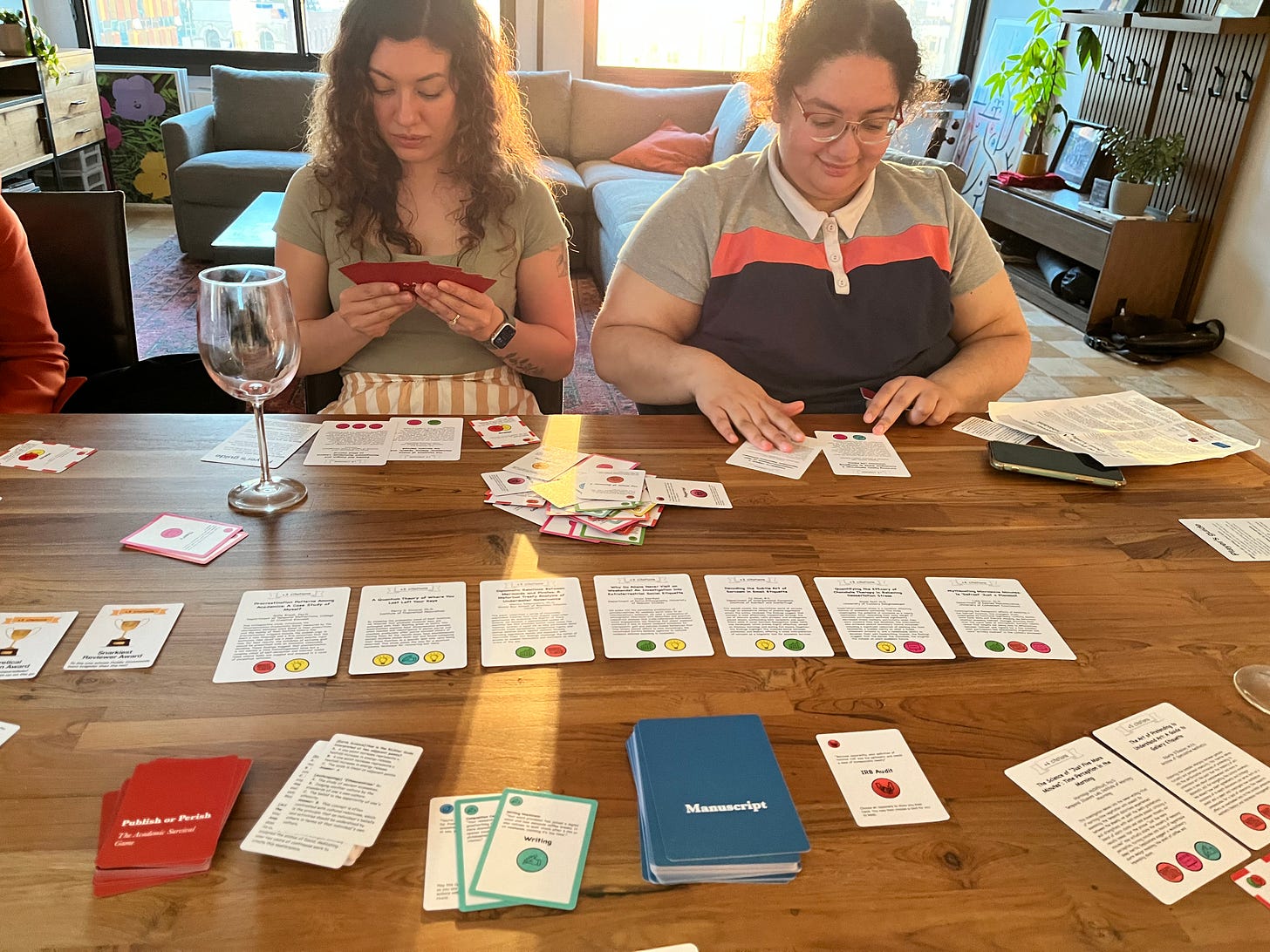Bridging the Climate Change Gap Between Liberals and Conservatives
When it comes to climate action, people on both ends of the political spectrum are more alike in their climate actions than their beliefs might suggest.
Polarization is a major barrier to fighting climate change. Many studies have found that liberals accept the reality of anthropogenic climate change more than conservatives.
Given this gap, one might think they would also be more likely to engage in real-world climate actions. However, our recent new finding from a global megastudy, involving 51,224 participants from 60 countries challenge the straightforward link between beliefs and actions and suggest a pathway to help overcome the polarization of climate changeOur paper is called “The differential impact of climate interventions along the political divide in 60 countries” and was published in the most recent issue of Nature Communications (the authors were Michael Berkebile-Weinberg, Danielle Goldwert, Kim Doell, Jay Van Bavel, and Madalina Vlasceanu).
A phenomenon known as the “green gap” reflects the disparity between what people believe about climate change and their actual climate actions. Our study examined whether the political polarization in climate change beliefs manifests as polarization regarding climate actions, such as investing effort and time to generate tree-planting donations. Liberals who believe strongly in climate change may not engage in climate actions, while skeptical conservatives might still participate in actions that benefit the environment.
Our study also tested eleven targeted interventions developed by experts in the field. Some interventions include promoting scientific consensus (e.g., presenting information that 99% of experts agree on climate change facts), writing a letter to future generations (e.g., thinking about how one’s current actions impact future generations), and emphasizing collective actions (e.g., featuring examples of successful collective efforts that have solved past global issues, such as the restoration of the ozone layer).
Overall, most people around the world believed in human caused climate change and supported a wide variety of policies to reduce it (exceeding 75% of our total sample).We also observed worldwide polarization in climate change beliefs and policy support, with liberals generally showing higher levels of both compared to conservatives. However, this polarization did not extend to the amount of effort and time invested in a climate-relevant task—liberals and conservatives were equally likely to engage in the tree-planting donation task (see the figure below). Their efforts led us to plant over 300,000 trees.
These findings challenge the traditional assumption that beliefs drive behavior. Instead, the green gap among liberals suggests that factors such as cognitive biases, perceived personal costs, and social norms can disrupt the direct translation of environmental beliefs into real environmental action.
Likewise, the mismatch between climate skeptics’ beliefs and behaviors has also been documented. For example, conservative farmers regularly adopt pro-environmental practices despite lacking belief in anthropogenic climate change. This suggests that a narrow focus on changing hearts and minds might not be a silver bullet for fighting climate change.
So, who is to blame for this green gap? Are liberals failing to put their money where their mouth is and act on their strong beliefs in climate change? Or are conservatives more inclined to engage in climate mitigation actions than their beliefs alone might suggest? Our data align more closely with the latter: conservatives are willing to act despite their beliefs, rather than liberals failing to act on theirs.
This is promising news for pro-environmental efforts: the political resistance to accepting climate change or supporting climate policies does not necessarily translate into a behavioral resistance to engaging in at least one type of individual-level climate action. There may be actions that transcend political divides where people are willing to take action immediately.
While conservatives may not partake in climate actions due to their beliefs about climate change they may nevertheless engage for reasons that align with conservative values, such as preserving natural beauty.
Additionally, direct actions like tree planting can allow them to contribute positively without endorsing large-scale government policies. In fact, it might help them develop an identity as someone who cares about the environment. This might help them see the benefit of environmental and climate policies.
While some critics have argued that supporting policy and individual action are negatively related, we find the exact opposite! Across every measure, individual actions were positively correlated with support for system politics. This offers hope that bridging divides through real world actions may ultimately build consensus for broader changes.
Effectiveness of Psychological Interventions
Of course, climate change extends beyond our generation.. This may be why an intervention like writing to future generations increased both conservative and liberal support for climate policies! Other interventions, like emphasizing the scientific consensus around climate change, spurred action only among liberals.
This underscores the need for ideologically tailored approaches in promoting climate beliefs and behaviors. Other interventions that reduced psychological distance or promoted future-self continuity also had positive effects on both liberal and conservative climate beliefs and policy support.
Interestingly, while these interventions helped bridge the belief gap, conservative actions were paradoxically reduced by several interventions that otherwise bolstered their climate beliefs or policy support. The fact that no single intervention significantly boosted conservative climate actions suggests that future research is needed to develop and test new methods to activate this demographic’s practical engagement with climate solutions, without necessarily relying on changing their underlying beliefs.
To explore the effects of our interventions across the globe, we have created a simple, user-friendly web-app that is freely available. This tool allows users to see how effective interventions are in different countries, by age groups, and by political ideologies. While we caution users not to rely on evidence from groups that are too small (e.g., sample sizes should include at least 30 people), it is a powerful, easy-to-use tool that policymakers, academics, journalists, and beyond can use to help better understand the effectiveness of the interventions in their people.
By understanding the underlying values and motivations of different groups, policymakers and activists can craft more effective and inclusive campaigns that not only increase awareness but also motivate real-world action. Rather than trying to eliminate differences in how conservatives and liberals approach climate actionwe should focus on amplifying positive efforts across the spectrum. By engaging conservatives and liberals in ways that align with their respective values—whether it's the pragmatic beauty of conservation or the urgent need for scientific action– we can enhance the collective effort to combat climate change.
Tackling this problem will ultimately require all of us. So we should harness the best of both worlds to foster a more sustainable future.
Use this link to read the full paper.
This newsletter was adapted from an Op-Ed written by Danielle Goldwert and Kim Doell by Sarah Mughal, and edited by Jay Van Bavel; you can read the original here.
New Papers and Pre-Prints
Our pre-registered replication of “Moral Hypocrisy: Social Groups and the Flexibility of Virtue” was recently published in Psychological Science.The original experiment by Valdesolo & DeSteno found that group identity influences hypocrisy such that people are more forgiving of immoral acts committed by in-group members compared to out-group members, which has become a foundation of moral psychology. Although experiments failed to replicate the original paper’s effects, we nevertheless found evidence for intergroup moral hypocrisy. Specifically, we found evidence of in-group favoritism in minimal groups and out-group derogation in political groups. This paper was led by Claire Robertson, Madison Ackles and Jay Van Bavel.
Our commentary for Brain and Behavioral Sciences,l was also published. Weargue that social media algorithms hijack people’s innate tendency to pay attention to threatening stimuli, by pushing controversial and upsetting content in people’s social media feeds; however, this is not the type of content that people express they would like to see. You can read more here. This paper was led by Claire Robertson, Kareena del Rosario, Steve Rathje and Jay Van Bavel.
We also published a paper in PNAS Nexus about the impacts of generative AI on information, education, healthcare, and work, with a focus on how generative AI can both reduce and exacerbate inequality in these domains. Jay was a co-author on this paper with a group of experts in these areas.
Finally, we also shared a new preprintarguing that moral expressions are flexible and responsive to social norms due to different kinds of goals that govern social influence. Read it here. This paper was led by Kareena del Rosario, Tessa West and Jay Van Bavel.
Outreach
Jay was recently interviewed by the New York Times in an article called ‘Why losing political power now feels like ‘losing your country’. You can read it here.
Jay also gave a plenary talk (and workshop with the Clarity Foundation) discussing misinformation and ways to combat it to several hundred doctors and nurses at HQBC! You can watch his talk here.
News and Announcements
We’re very excited to announce that Anni Sternisko will be joining the Social Identity and Morality Lab as an Associate Research Scientist! She will be heavily involved in helping us grow and develop the Center for Conflict and Cooperation. You can read her bio below:
Anni obtained her Ph.D. in social psychology from New York University with Jay and her B.A. from Ludwig-Maximilians-Universität Munich. She is interested in the social dynamics of conspiracy theory beliefs, polarization, and ideology. Anni has used her expertise to advise organizations on information campaigns, depolarization programs, and non-violent communication training. She also serves as an Expert Affiliate with the United Nations Team of the Society for the Psychological Study of Social Issues, which holds permanent consultative status at the U.N. In this role, she has worked on issues such as environmental injustice, data-driven policy making, and sustainable development.
Kim Doell (kimdoell.com), a former postdoc in the Social Identity and Morality Lab, is starting a new, exciting research group called the Environmental Collective (ECo) Behaviour Group, and they are looking for a PostDoc (https://stellen.uni-konstanz.de/jobposting/3b405784db68b2edaf6a9cb92909b1d3a8370e0f0)! This group will be at the University of Konstanz, Germany, in the Cluster of Excellence, called the Centre for the Advanced Study of Collective Behaviour (CASCB; https://www.exc.uni-konstanz.de/collective-behaviour/about-us/overview/). Her group aims to address the challenges related to climate change and sustainability through collective efforts and evidence-based solutions. One exciting advantage of this postdoc position is that the candidate will get to help shape the trajectory of the research being done in the group and within the CASCB! For any questions about the position, please get in touch with Kim directly at kimberlycdoell@gmail.com!
Congratulations to lab member Ke Fang for graduating from NYU Gallatin’s School of Individualized Study! He will be pursuing a Ph.D in Social Psychology under the mentorship of Robert Hawkins next year. Best of luck to Ke in his future endeavors!
We would also like to extend a heartfelt congratulations to our new postdoc Laura Globig for successfully defending her Ph.D paper! Here’s a picture from the picnic we had to celebrate:
Lab members Steve Rathje, Laura Globig, Sarah Mughal, and Jay, along with lab collaborator Killian McLoughlin, were announced as finalists for the Prosocial Ranking Challenge! The Prosocial Ranking Challenge is a competition hosted by the UC Berkeley Center for Human-Compatible AI seeking to test the best social media algorithm that promotes prosocial behaviors. Our algorithm downranks divisive social media content: posts with expressions of moral outrage or negative sentiment, a low ‘likes per retweets’ ratio, and links to low-quality news sites. Posts linking to the lowest quality sites are also replaced.
Our global climate change intervention paper, led by Madalina Vlasceanu, Joe Bak-Coleman, Jay Van Bavel, and Kim Doell, also won the 2024 BSPA Publication Award for Innovation in Behavioral Policy! It was selected out of nearly 60 other papers. You can read the paper here.
We also had a fun lab game night, where we playtested a card game called Publish or Perish made by Max Hui Bai. The game is a funny take on the endless publication cycle that seems to pervade academia. It was a lot of fun! You can check out the pre-order form here.
Our PhD student Danielle Goldwert had an art exhibition up at the New York Public Library in Tribeca! You can check it out for yourself in person until the end of May. Here is her description of her artwork:
“In the stillness of solitude, we find ourselves face-to-face with the essence of our being. This collection of paintings is an introspective journey into the spaces and silences that shape our inner landscapes.
What does it mean to be alone with one’s thoughts, dreams, and memories? How does the physical environment influence the experience of solitude? This body of work does not aim to answer these questions but to ask them, to stir the silence, and to celebrate the beauty and complexity of being alone.”
We also took a new lab photo!
If you have any photos, news, or research you’d like to have included in this newsletter, please reach out to our Lab Manager Sarah (nyu.vanbavel.lab@gmail.com) who puts together our monthly newsletter. We encourage former lab members and collaborators to share exciting career updates or job opportunities—we’d love to hear what you’re up to and help sustain a flourishing lab community. Please also drop comments below about anything you like about the newsletter or would like us to add.
And in case you missed it, here’s our last newsletter:
That’s all for this month, folks- take care, and we’ll see you next month!




